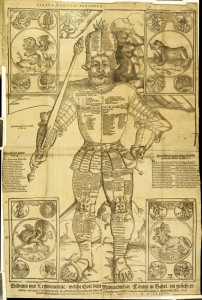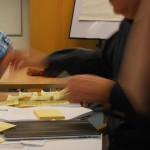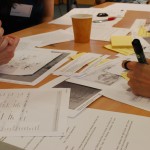The AHRC-funded Commodity Histories project aims to produce a 'website that will function as a collaborative space for scholars engaged in commodities-related research'. The project organised a workshop, 'Designing a collaborative research web space: aims, plans and challenges of the Commodity Histories project' in London on 6-7 September 2012.
As part of opening session on the 'aims, plans and challenges of the Commodity Histories project and website' I led a card-sorting exercise aimed at finding out how potential scholars in the community of commodity historians would expect to find and interact with content and other scholars in the network. We prepared print-outs of sample content in advance and asked participants to sort them into groups and then label them. At the end of the workshop I presented the different headings the groups had come up with and discussed the different ways they'd organised the material.
While some work had been done on the site structure previously, the process was useful for understanding some of the expectations people had about the functionality and sociability of the site as well as checking how they'd expect the site to be organised. Various other presentations and discussion during the workshop reinforced the idea that the key task of the site is to enable contributors to add content easily and often, and tempered our expectations about how much scholarly networking would be visible as conversations on the site.
Ewan Klein has written up some of the workshop at The Boundaries of Commodities.


